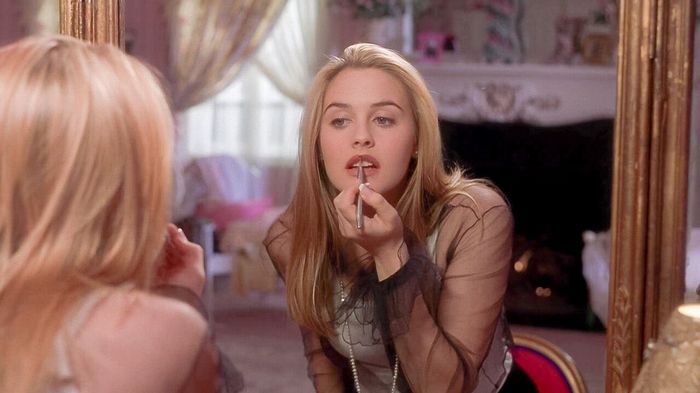Women in Sci-Fi — fine line between progressive and patronising
Brianna Mitchell takes on the weighty legacy of Doctor Who — and the women in it.
British Television has been dominated by Science Fiction for as long as can be remembered and no show has had a greater worldwide impact than Doctor Who. That is why the impact of the show’s first female protagonist, over 50 years after the show began, was viewed as a monumental sign of progression for feminism.
As a universal figure, The Doctor is only associated with a particular gender because their physical appearance correlates with that of a human – traditionally male. However, as with any long-running show, the values of the viewers have changed. This is what led to the increasing calls for a female lead – something which, theoretically, could have happened at any point.
The gender of The Doctor created accusations of a power imbalance between The Doctor and their fellow travellers. However, correlating a power imbalance with a gender imbalance is presumptuous. In reality, it is the result of a more experienced traveller with less experienced travellers. This is no different to a tour guide being more experienced than those participating in the tour.
Doctor Who has always tried to defy categories. There is no difference between them and us. Between aliens and humans. Between those who fit in and those who don’t. Everyone has their place.
That is why the argument that a female Doctor has created a role model for young girls is largely irrelevant. Followers of the show have seen formidable characters, of both genders, for decades. For the purpose of discussing a female doctor’s relevance, here, the focus will be on the women that the Doctor has travelled with.
In the Classic Era, Tegan had committed to travelling long before the Doctor came along, working as an air hostess. When the time came, she left of her own accord. She recognised that travelling through space and time was as dangerous as it was exciting, and took control by removing herself from the situation.
Ace was the last companion of the Classic Era. Extremely independent and capable, she is famous for fighting the deadly Daleks with nothing but a baseball bat. This rebellious teenager was content to risk her life in the name of adventure.
Moving on to the Revived Era, Amy Pond is one of British television’s greatest role models. This fiery redhead wasn’t willing to ignore her own mind. In her second episode, she stopped a future British race from torturing a last-of-its-kind alien that had willingly come to help them survive the Earth’s destruction. She was prepared to follow her own conscience; she wouldn’t blindly follow the Doctor just because he gave her an instruction.
“With female role models such as this, there is no question that Doctor Who was already a progressive show for women.”
Even the Doctor’s wife, River Song, couldn’t be further from female stereotypes. She refused to continuously travel with the Doctor, thus subverting the traditional notion of how a married woman should act. She was flirtatious and feisty, and this is something that the Doctor never tried to stop. Both characters were able to be themselves and were therefore harmonious as a couple.
With female role models such as these, there is no question that Doctor Who was already a progressive show for women. The Doctor’s gender could have remained male and many fans – even those who have applauded the change – would not have seen the need for change.
The fact that auditions for a Thirteenth Doctor were held only for women does not help the argument that it occurred due to political correctness – in fact, it subverts the notion that women are equal to men by bypassing men altogether. It would have been a stronger message to have auditioned people of all genders, and then announce a female doctor.
The Doctor didn’t need to become a female role model – women were already inspired by characters on the show. Doctor Who viewers are some of the most open-minded of people; they look beyond gender and see the values that the Doctor holds. This is something that not all sectors of society can claim. By continuously focusing on gender, society does not bridge the gap but rather it emphasises it, even in cases where it is improving.
Even if the show was stereotypically associated with men, it is patronising to expect women to care more about it because its protagonist is now female. Both men and women are interested in entertainment. What is entertaining is not limited to members of a particular gender.
Women are some of Doctor Who’s strongest supporters but that does not mean that they cannot be inspired by men. They will watch the show no matter what the gender of its lead star is. Television viewers must no longer be patronised with the superficial misconception that the gender of the main star should be connected to the gender of the target audience.
 News / Eight Cambridge researchers awarded €17m in ERC research grants27 December 2025
News / Eight Cambridge researchers awarded €17m in ERC research grants27 December 2025 News / Downing investigates ‘mysterious’ underground burial vault 29 December 2025
News / Downing investigates ‘mysterious’ underground burial vault 29 December 2025 Lifestyle / Ask Auntie Alice29 December 2025
Lifestyle / Ask Auntie Alice29 December 2025 Sport / Hard work, heartbreak and hope: international gymnast Maddie Marshall’s journey 29 December 2025
Sport / Hard work, heartbreak and hope: international gymnast Maddie Marshall’s journey 29 December 2025 Interviews / Meet Juan Michel, Cambridge’s multilingual musician29 December 2025
Interviews / Meet Juan Michel, Cambridge’s multilingual musician29 December 2025










